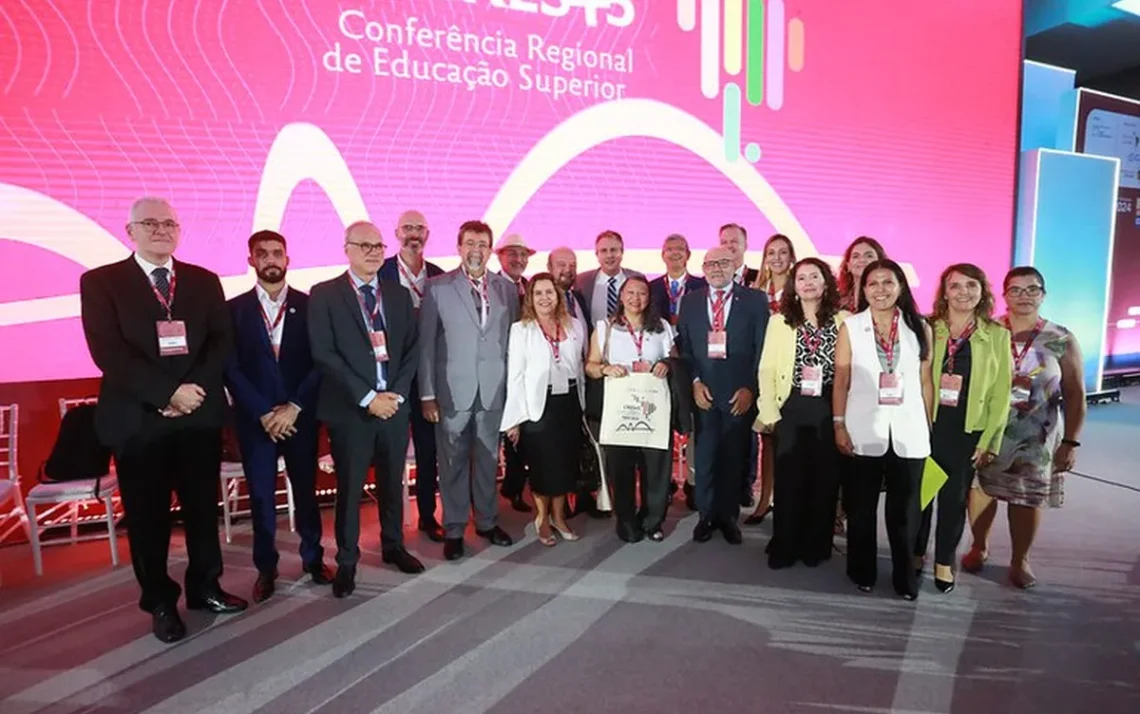Final day of conference highlights investments, focuses on international relations in higher education. Addressing regional inequalities for fairer societies.
One of the most anticipated higher education gatherings in Latin America and the Caribbean (CRES+5) successfully concluded its initial day, marking a significant moment for the advancement of the sector in the region. The Brazilian administration revealed a commitment to allocating over 120 million reais towards fostering collaboration and growth in the field.
This substantial investment not only demonstrates a strong dedication to education enhancement but also serves as a vital step towards fostering democracy through knowledge and opportunity. The importance of prioritizing investment in higher education cannot be understated, as it plays a crucial role in shaping the future of societies and economies.
Continuing the Discussion on Higher Education
Beyond this, and equally significant, the conference highlighted Brazil’s reemergence as a key player in the global conversation on the significance of higher education in addressing regional disparities, fostering more equitable societies, and fortifying democratic values.
The reinforcement of Brazil’s leading position in dialogues surrounding the future of higher education in Latin America and the Caribbean was a prevalent theme throughout speeches, meetings, and the inaugural ceremony held today in Brasilia.
The introduction of two novel initiatives, designed to enhance higher education and facilitate collaborations with other participating nations, demonstrated the Brazilian government’s proactive approach during this transformative period.
Investing in Education and International Partnerships
Minister of Education, Camilo Santana, unveiled a commitment of 102 million reais over eight years to the Montevideo Group (AUGM), a coalition of 41 universities from Brazil, Argentina, Bolivia, Chile, Uruguay, and Paraguay collaborating on joint programs.
Moreover, through the Mova La América program, an additional 20 million reais will be dedicated to providing 500 master’s and doctoral scholarships for students pursuing internships at Brazilian federal institutions.
Santana emphasized that investing in higher education is not merely a choice but an essential obligation, attributing significant advancements in the sector over the past two decades to initiatives set forth under President Luiz Inácio Lula da Silva’s administration, despite his lack of a university degree.
While Brazil assumes a leadership role in these endeavors, the government underscores the shared responsibility among local and regional leaders in driving progress.
Collaborative Efforts and Regional Responsibilities
According to Rui Oppermann, Director of International Relations at the Coordination for the Improvement of Higher Education Personnel (Capes), Brazil’s renewed engagement on the global stage holds particular significance for Latin America and the Caribbean, given their status as neighboring nations and preferred partners across various realms, including culture, history, economy, and education.
‘We share many commonalities, and this conference serves to underscore Brazil’s reintegration into the broader Latin American community, seeking to reignite collaborative development projects that have historically defined our relationships,’ Oppermann stated.
Addressing Social Challenges and Fostering Sustainable Development
During the afternoon session, participants convened to explore six thematic axes: the role of higher education within the educational framework, cultural diversity and interculturality, internationalization and regional integration, education in response to societal obstacles, scientific and technological research, and the strategic impact of higher education on sustainable regional development.
While the topics varied, consensus prevailed among working groups on the vital role of higher education in combating denialism, local and regional disparities, promoting sustainability, and mitigating the risks of climate-related disasters.
Francesc Pedró, director of UNESCO-IESALC, remarked, ‘The alignment of our objectives following the initial conference sessions instills a sense of optimism as we strive to establish a collective vision for the next five years, focusing on the common ambition of delivering inclusive and equitable higher education for all.’
Keynote Address and Program Overview
On Thursday, March 14th, CRES+5 will commence with a keynote address by Professor Nilma Lino Gomes, former Minister of Women, Racial Equality, and Human Rights, preceding a series of symposia hosted by eight thematic commissions.
The day’s activities will conclude with a roundtable discussion featuring the coordinators of the second day’s symposia at CRES+5. For a detailed schedule, please refer to the complete program issued by the MEC Communications Department.
Fonte: @ Ministério da Saúde






Comentários sobre este artigo